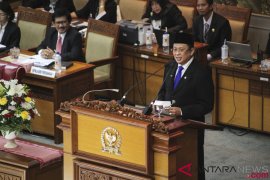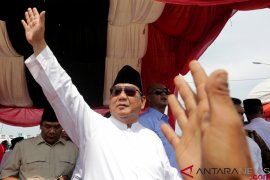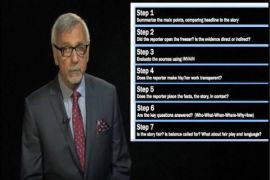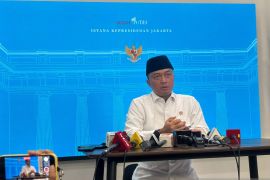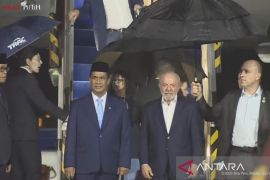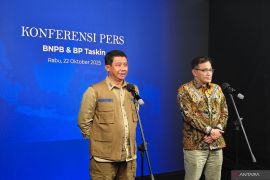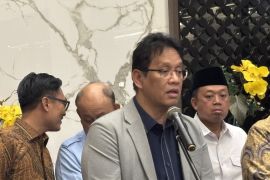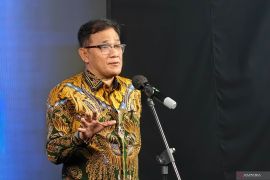Presently, fake news can be observed to be spread to skew elections worldwide, including in Indonesia. The perpetrators of such fake news are believed to be compensated by politicians or their supporters to echo negative messages targeting their opponents and circulate them on social media platforms.
Foreign Affairs Minister of Canada Chrystia Freeland lately cautioned that malign foreign actors will possibly attempt to meddle in the Canadian federal election in October.
"We are highly concerned. I think our opinion is that some or the other form of meddling is quite likely, and we believe malign foreign actors have perhaps already been scheming, plotting, and attempting to disrupt our democracy," she informed the press.
In January 2019, Channel News Asia (CNA) had brought to light a story of Veles, a small town in Macedonia, Europe, called the world’s fake news capital.
The media also took an interview of Mirko Ceselkoski, an Internet marketing consultant & strategist, claimed to have helped Donald Trump emerge victorious in the US elections. CNA reported that hundreds of fake news are circulated across the globe for profit from Veles.
Ceselkoski and his team should not be the only one. The rampant spread of fake news across the world and its impact on the public has triggered concerns among mainstream medias, including the Organization of Asia Pacific News Agencies (OANA), one of the biggest news organizations in the world.
Currently, OANA unites 44 news agencies from 35 nations of the Asia-Pacific region, including ANTARA News Agency, accountable for the circulation of two-thirds of the information worldwide.
During the 44th Executive Board Meeting of OANA in Hanoi in April, fake news was the most highlighted issue by concerned members.
OANA President Aslan Aslanov pointed to fake news being a grave issue currently since it significantly impacts news agencies, but OANA member agencies take immense pride in a long-standing history and experience, some almost century-old.
"Hence, as long as news agencies and the principles of journalism exist, the society can feel secure, since despite the widespread circulation of fake news, we are able to counter it through offering accurate and reliable news," he stated.
Aslanov believes that OANA news agencies have been able to garner a high level of trust due to the firm and steady adherence to the principles of identification and fact-checking of news prior to being published.
In the meantime, Vietnam News Agency Deputy General Director Le Quoc Minh reiterated the need to revert to the core values of journalism and professionalism to win back the audience’s trust in mainstream news.
Minh stressed that journalists should conduct meticulous verification of information, especially at a time when fake news is being rampantly circulated, improve the quality of their products, drive work ethics, and hone skill sets to adopt new-fangled technologies in the work process.
He shed light on stories of how fake news have spread like wildfire among Vietnamese in line with the rising popularity of social media.
In June 2016, several newspapers and news websites ran a story of a eleven-year-old boy in Gia Lai Province, Vietnam, who had committed suicide since he did not have a new T-shirt to wear for the school year. No such incident had, in fact, taken place, but the extensive coverage on mainstream media triggered an uproar over the discrimination faced by ethnic children.
Minh cited several other instances of fake news being concocted and circulated in recent years, including the Ebola virus detected in Bach Mai hospital, Hanoi, a gruesome killing in Nam Dinh Northern Province, and a dam collapsing in Nui Coc Lake, thereby triggering confusion and panic among the people.
The brisk circulation of information on social media, oftentimes employing sensational details or allegedly breakthrough news, has been causal to the current media chaos frequently fueled by modern technology.
Bahrain News Agency pointed out that news agencies and journalists, prioritizing prompt, credible, and ethical coverage, have come under insurmountable pressure owing to the dissemination of fake news.
Lee Dong-min from the Yonhap News of the Republic of Korea highlighted that fake news had turned out to be a major issue in her country.
In an effort to fight fake news, Yonhap News had formed a fact-checking team in March 2018, chiefly responsible for zeroing in on three or four news weekly and conducting exhaustive fact-checking, especially for statements made by influential people.
Dong-min believes fake news had a tendency of becoming viral on social media partially due to the dearth of a reputed institution or media to verify the information.
As a responsible member of the media, news agencies must seek solutions to ascertain timely flagging, checking, evaluation, and rectification of false news, she emphasized.
Adopting a similar stance, Kyodo News of Japan had stated in its country report that for authenticating information circulating on the web and tweaking for news coverage, a “D-Watch team” had been established in 2012 to keep track of content on different websites and social media and notify the News Centre on it.
Furthermore, the D-Watch team keeps close tabs on information published on websites and social media in the event of any major accident or serious natural calamity.
Kyodo News reported that along with scrutinizing information on websites and social media, the D-Watch team is presently applying an AI-assisted system termed “FASTALERT” for assimilating information published by witnesses on social media.
Fake news undoubtedly burdens the society with problems, ranging from initiating discourses to triggering conflicts. The swift spread of fake news, sparked partly by the social media's inclination to favor “click-worthy” information, has contributed to plummeting trust among the people in mainstream media.
Nonetheless, ANTARA News Agency of Indonesia has, time and again, risen to the occasion and offered exemplary services in tune with the public's expectations by not only producing trustworthy news stories but also providing fact-checked reporting to the public.
News Director of ANTARA Akhmad Munir opined that a news agency must also engage with social media to stay on top of the game and in sync with social media in disseminating news and eradicating the growing menace of hoaxes and fake news.
"Currently, social media is one of main news sources of the people. A news agency, as one of the mainstream media platforms, is accountable for educating the masses on the quality of the news consumed," he remarked.
ANTARA set up its solid fact-checking team amid the elections to offer reliable and prompt information to the public regarding issues spread through social media.
The fact-checking team also conducted a real time fact-checking during the last presidential debates to facilitate the people in corroborating the presidential candidates' statements or data.
Nevertheless, despite extensive efforts by the news agency to conduct verification of fake news circulating in the public domain, the best approach to avoid the impact of fake news is by raising public awareness over its presence.
The public must bear in mind the golden rule of not falling for fake news regardless of how genuine they are made to appear or sound. They should question every story and data they receive and re-check it prior to circulating it in their circles, so that they do not turn out to be the ones disseminating the fake news.
If societal awareness is high, fake news can be hopefully contained.
"War is peace. Freedom is slavery. Ignorance is strength," George Orwell, a well-known journalist, made this remark in his novel, 1984. Orwell shed light on a story of the dystopian world wherein the government controls the narrative of its people's reality by producing fake news, or what he termed as "alternative facts."
With the rise in fake news, it is not just the government that can manipulate "truths" for the public. Hence, maintain constant vigil is not just a choice but a necessity.
Editor: Bambang Purwanto
Copyright © ANTARA 2019


